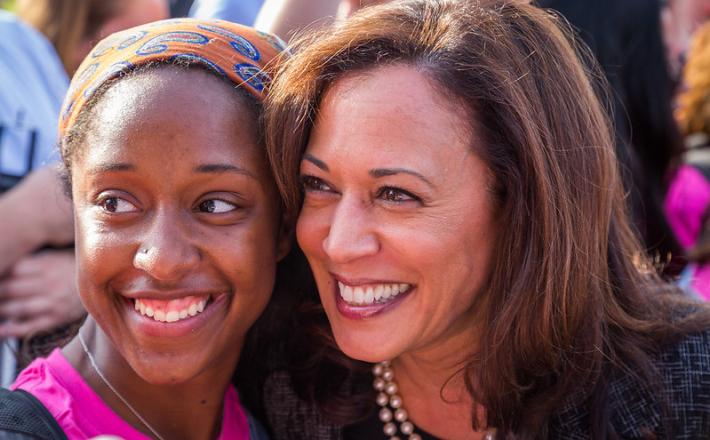“The first woman in this office, but not the last”: Four ways to empower a new generation of women political leaders
Source: Ms Magazine
By Lucina Di-Meco,
Women politicians make for more equal and caring societies, and that their increased representation in office improves health, education and welfare outcomes for the entire population. So how can we foster the next generation of effective women leaders?
When Vice President-Elect Kamala Harris made history last weekend, as the first woman, first Black and first South Asian in this role, she specifically addressed the millions of “little girls watching” across the country.
Yet, the path to leadership seems impossible for girls around the world, where gender stereotypes and practical constraints limit girls’ ability to dream of a future worthy of their gifts.
In my work I have met with girls from marginalized communities in countries as diverse as Bangladesh, Tanzania and Laos. Despite incredible challenged to having even their most basic human rights met, so many of them have want to be leaders, not so that they can have power over others, but so that they can have the power to solve people’s most pressing challenges.
Click here to read the full article published by Ms Magazine on 16 November 2020.

By Lucina Di-Meco,
Women politicians make for more equal and caring societies, and that their increased representation in office improves health, education and welfare outcomes for the entire population. So how can we foster the next generation of effective women leaders?
When Vice President-Elect Kamala Harris made history last weekend, as the first woman, first Black and first South Asian in this role, she specifically addressed the millions of “little girls watching” across the country.
Yet, the path to leadership seems impossible for girls around the world, where gender stereotypes and practical constraints limit girls’ ability to dream of a future worthy of their gifts.
In my work I have met with girls from marginalized communities in countries as diverse as Bangladesh, Tanzania and Laos. Despite incredible challenged to having even their most basic human rights met, so many of them have want to be leaders, not so that they can have power over others, but so that they can have the power to solve people’s most pressing challenges.
Click here to read the full article published by Ms Magazine on 16 November 2020.